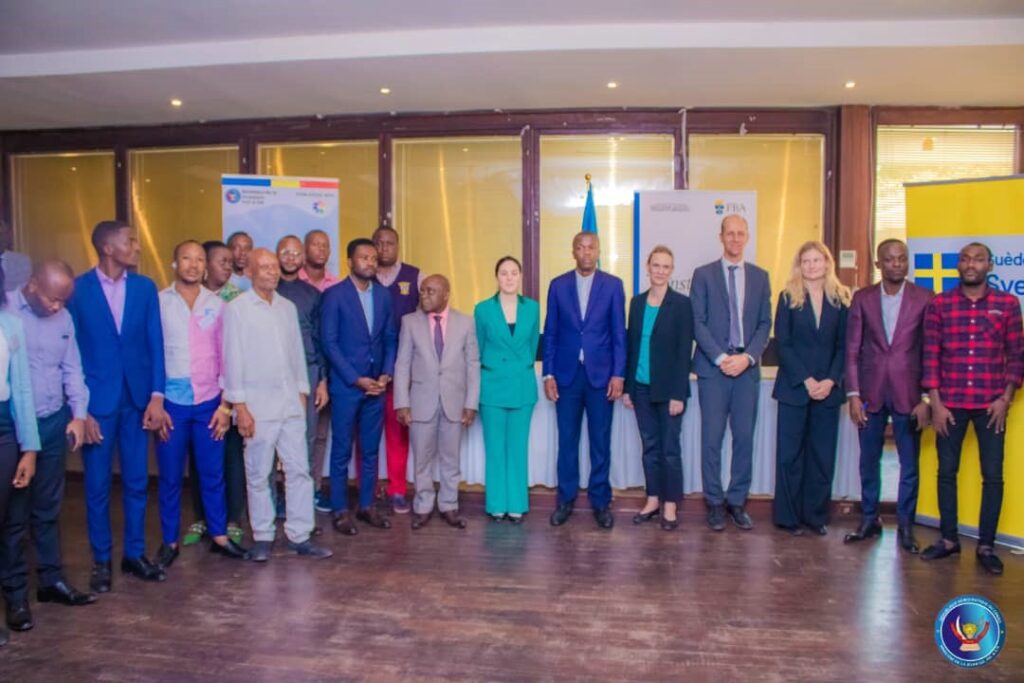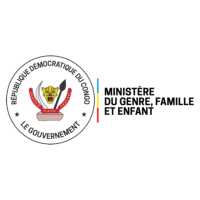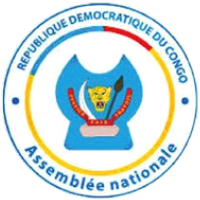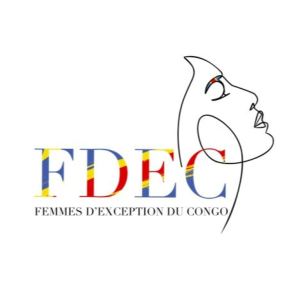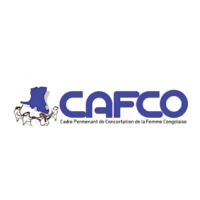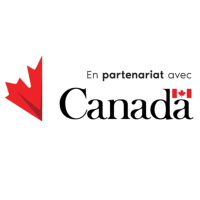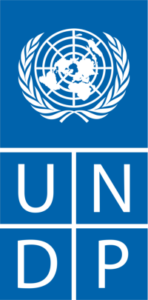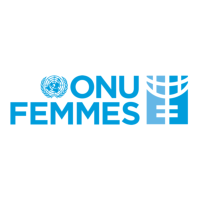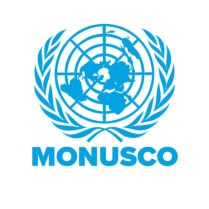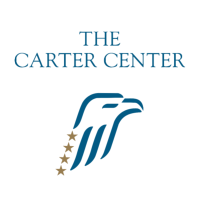Catégorie Jeunesse Paix et Sécurité
30 Juil
Réunion entre le Secrétariat Technique National de la 2250 ay bureau de la RSSRG avec madame Bintou Keita
Vendredi 28 mai, le Secrétariat Technique National de la 2250 était convié à une réunion très importante au bureau de la RSSRG, madame Bintou Keita. Au cours de ces échanges, il était question pour le STN de soumettre son cahier des charges à la patronne des Nations Unies en RDC. Prenant la parole, madame Lelo a introduit l’équipe en sa qualité de cordonnateur adjointe, ensuite le rapporteur que nous sommes, avons pris la parole pour présenter les réalisations du STN, les besoins qui nous ont amenés à elle, ainsi que les institutions déjà contactées jusqu’ ici et qui sont indispensables pour l’avenir du STN. Prenant la parole, la RSSRG a tout d’abord remercié les membres du STN, venus à sa rencontre, elle s’est faite accompagnée du Représentant Spécial Adjoint, du Directeur du BCNUDH, de la responsable de l’unité PSCF MONUSCO paix et sécurité ainsi que son assistant personnel Daniel Palmer. Dans son message, en gros elle a voulu que les deux institutions commencent d’abord par se familiariser avant de pouvoir poursuivre les échanges car, dit-elle, chacun devrait connaître l’autre avant de se dire oui, language imagé comme ça se fait quand un homme demande la main d’une femme. En effet, tous ses collègues ont chacun pris la parole et témoigné la volonté de poursuivre les échanges avec le STN. En conclusion, elle nous a demandé que nous ayons une autre réunion dans une semaine pour présenter *TROIS PRIORITÉS* *MAJEURES* DU STN qui nécessitent son accompagnement entant que patronne de la mission des Nations Unies en RDC. Juste après que les autres membres soient partis, nous avons été rappelé d’urgence pour assister à un autre entretien à huit clos avec madame Shidi de l’unité PSCF MONUSCO. Elle nous a dit que mercredi ou jeudi on doit être encore à la MONUSCO pour un travail en interne avant de convoquer la réunion élargie avec la RSSRG. Il nous a aussi été remis un paquet de documents pour tout le monde qui était présent dans la salle que je remettrai quand on se verra. Ils ont insisté que nous ne manquions pas de revenir sur les questions électorales. Madame Bintou Keita ordonnera que l’appui financier du STN passe par le PNUD par rapport au volet électoral et politique des jeunes, l’UNFPA pour les questions de violences sexuelles et le Genre. Quant à la 2250 c’est L’ONU-FEMMES qui assurera cet aspect. ST 2250. Eddy-Yav, Porte-Parole du STN-2250
EN SAVOIR PLUS30 Juil
ATELIER D’EVALUATION ET DE RENFORCEMENT DES CAPACITES DES ACTEURS CLES, IMPLIQUES DANS LA MISE EN ŒUVRE DU PLAN D’ACTION
STN 2250 RDC : ATELIER D’EVALUATION ET DE RENFORCEMENT DES CAPACITES DES ACTEURS CLES, IMPLIQUES DANS LA MISE EN ŒUVRE DU PLAN D’ACTION Sous le Leadership de Madame Marie Rose TSHITE et de son équipe, la Coordination du Secrétariat Technique National de l’Implémentation de la Résolution 2250 du Conseil de Sécurité des Nations Unies en République Démocratique du Congo, sous le patronage du Ministre de la Jeunesse, Initiation à la Nouvelle Citoyenneté et Cohésion Nationale, a organisé avec l’appui de son partenaire l’Académie Folke Bernadotte (FBA), un atelier d’évaluation et de renforcement des capacités institutionnelles et du lancement de processus de planification stratégique et opérationnelle pour la mise en œuvre du Plan d’Action National de la Résolution 2250. Ledit atelier a eu lieu au cercle de Kinshasa, du 28 février au 3 mars 2023. L’atelier s’est circonscrit essentiellement sur : L’évaluation des capacités institutionnelle du Secrétariat Technique National de l’implémentation de la Résolution 2250, Renforcement des capacités techniques des acteurs clés impliqués dans la mise en œuvre du Plan d’Action National de la Résolution 2250, Mise en place des outils nécessaires pour faciliter le processus de mise en œuvre du Plan d’Action Nationale 2250 au niveau national et des provinces, Analyse du mécanisme de coordination du STN Les échanges durant les quatre jours ont permis au Secrétariat Technique R2250 et aux autres parties prenantes à pouvoir s’outiller et avoir des nouvelles orientations et engagement, afin de fédérer les efforts dans le but d’une mise en œuvre effective et efficiente du Plan d’Action National 2250 sur l’ensemble du Territoire. Ces assises ont connu la participation des membres du Cabinet du Ministre de la Jeunesse, Initiation à la Nouvelle Citoyenneté et Cohésion Nationale, ceux du Secrétariat Général à la Jeunesse, ceux du Secrétariat Technique National 2250, le Conseil National de la Jeunesse ainsi que ceux de la société civile, notamment la Coalition Jeunesse, Paix et Sécurité R2250, auxquels étaient joints les partenaires techniques et financiers, entre autre : UNFPA, MONUSCO, FBA, AMBASSADE DE SUEDE. Au terme de ces travaux, quelques recommandations ont été formulées et présentées de la manière suivante : Obtenir une ligne budgétaire pour le fonctionnement du STN et la rémunération de ses membres ; Entamer les processus de vulgarisation et d’implémentation de la première génération du PAN 2250, telle qu’adopté par le Conseil des Ministres ; Démarrer les travaux avec les différentes autorités identifiées dans le PAN-2250 pour l’obtention des autorisations nécessaires pour la mise en place et l’opérationnalisation du système de coordination de la mise en œuvre du PAN 2250 ; Lobbying pour l’implication des autorités politico-administratives à tous les niveaux de gouvernance pour permettre aux jeunes de participer activement et avec facilité aux instances de prise de décision ; Lancer avec appui des partenaires les travaux d’élaboration du Plan opérationnel ; Numériser l’organisation et le fonctionnement administratif du STN 2250 ; Harmoniser les textes juridiques régissant le STN 2250 ; Elaborer le règlement intérieur comportant le job description du STN 2250; Intégrer le STN 2250 au sein des comités régionaux de l’agenda JPS ; Faire la prospection en vue de renforcement des capacités des acteurs et la mise en place des Secrétariat Techniques Provinciaux ; Mobilisation des fonds auprès des PTFs et signature des protocoles d’accord pour la bonne implémentation du PAN 2250 ; Renforcer les partenariats entre les OSC et le STN 2250 en les impliquant dans la mise en œuvre de l’agenda JPS ; Initier des séminaires régionaux et internationaux d’échanges d’expériences sur le processus de localisation de la Résolution 2250. Le 10 Mars 2023, Article écrit par Benjamin KUMA NIWA, rapporteur de l’activité.
EN SAVOIR PLUS9 Déc
The DRC YPS Coalition is officially launched on the 6 Anniversary of the UNSCR2250
The DRC YPS Coalition is officially launched on the 6 Anniversary of the UNSCR2250 Published : December, 9, 2023 Why do we need the DRC’s Youth, Peace, and Security agenda? Transparent Collaboration with all young people working on the YPS agenda to advance it at a national and provincial level. The DRC has come a long way in the vulgarization of the United Nations Security Council Resolution 2250 on Youth, Peace, and Security, materialized by the desire for more and more youth-led structures that have started to work together on the YPS Agenda in the country. Looking back at the first wave from 2015 to 2017, some young Congolese people participated in international and regional summits and conferences organized by the United Nations that were fundamental in informing young people about their role as agents of change in peacebuilding. There were young Congolese at the 2015 international conference on the role of youth in building sustainable peace in Jordan that gave food for taught for the UNSCR225O adoption the same year. There were also young Congolese who participated in the Central and western regional consultations on the UNSCR2250 in Benin in 2017, which contributed to the launching of the progress studies on the UNSCR2250 and, at the same time, facilitated the adoption of the second resolution on youth peace and security referred to as UNSC2419 in December the same year. Around 2019 and 2020, a second wave came with the vulgarization of the UNSCR220 in the country as many young Congolese activists were working on that, and we’re using it as a tool to reclaim their place in the decision-making processes through various initiatives. This eventually led the Congolese government to institutionalize on December 28th, 2020, through the ministry of Youth, the National Technical Secretary for the implementation of the UNSCR 2250 in the DRC (STN-2250/DRC). As the STN-2250 started his work in getting in touch with various partners and informing them of its existence. They realized that many youth-led structures worked separately, without knowing each other in various provinces. In South Kivu, for instance, they are groups like » Collectif 2250, » while in another province called Tshopo, they gathered as « Réseau Tshopo 2250 ». Knowing all that, the STN-2250 started identifying them on October 6. A first meeting was held on October 11 with major youth-led structures such as YALI-RDC, Youth4Peace DRC, NPCY, YWPL, AFIA MAMA, CONAJEFEL, Collectif 2250, and Reseau Tshopo 2250 already working on this thematic to exchange on how we can work on having our own National Coalition on Youth, Peace, and Security in the DRC. In the same process, the STN-2250 reached out for guidance from organizations such as Search for Common Ground (SFCG) and the office of the UN Youth Envoy to assist technically on how we could make such as coalition possible in the DRC. Enjoying certain confidence as an institutional structure while simultaneously realizing the limitations such institutions can have in lobbying and advocacy within the government. The STN-2250, through three exchange (Ocotober11 20, and November 4th) meetings with the youth-leading associations, have facilitated a framework for collaboration and synergy to push for unity in their work by forming a coalition. In this dynamic, SFCG and GNWP assisted in getting in touch with the Youth Peace Security coalition in the USA, Canada, Nigeria, Philippines, and Finland to assist the Congolese youth in this process. Hence various exchanges of experiences were planned to allow the Congolese youth to make their coalition through learning experiences and capacity building. Process of creating the D.R. Congo Youth, Peace and Security Coalition. 1. Methodology Though it is the STN-2250 who started this initiative as an institution that brings together youth, they have also realized that there was a need to be accompanied by those who have made the same journey before and allow youth involved in the process to take ownership of this to allow a better appropriation from youth-led organizations and young peacebuilders. Hence the support request was greatly appreciated, and SFCG responded the first one to assist in arranging one-on-one conversations with the various countries about how they started, managed varying interests, and continued to overcome the challenges they faced. They were followed by GNWP, who introduced some of the leading youth of the initiative to various groups. The goal was to have a handful of discussions to help the DRC make its journey through learning. The methodological approach proposed by SFCG is called the collective impact, which is different from traditional network initiatives as it will allow the Congolese to learn through many lessons from other countries’ coalitions. As for optimum learning, instead of having one event, they suggested that it might be more helpful to have a series of one-on-one discussions with some key Coalition leaders. They suggest the US, Nigerian, Finnish, and Philippine efforts and Canadians. Those countries have had varying levels of success in shaping policy that could be worth sharing with Congolese youth though most have not yet finalized their strategy to act on policy. Examples were given of the United States, which had a model that has not yet tested its strategy, and the Philippines, which has a model being tested currently. Having one-on-one conversations was proposed as an approach that will help dig deeper into what appropriate format will convene for the DRC. Their lessons could also be beneficial in shaping the DRC model and getting insightful details from them. It was therefore agreed to carry on with the one-on-one coalition exchange during November. Then organized a two-day meeting via zoom with all the youth who participated in those exchanges to decide on the agreed model for the DRC after a month of learning experiences and officially presented the National coalition at the 6th anniversary of the UNSCR2250 conference that will be organized by the STN-2250 through the ministry of youth and citizenship. The main objective of this process of young Congolese Peacebuilders is unifying young people around the YPS Agenda. to Brainstorm and Exchange sessions in November with other YPS coalitions who have succeeded in
EN SAVOIR PLUS
Salama Women’s Institute, « SAWI » est une organisation de droit congolais, sans but lucratif, apolitique et non confessionnelle créée le 19 février 2020.
